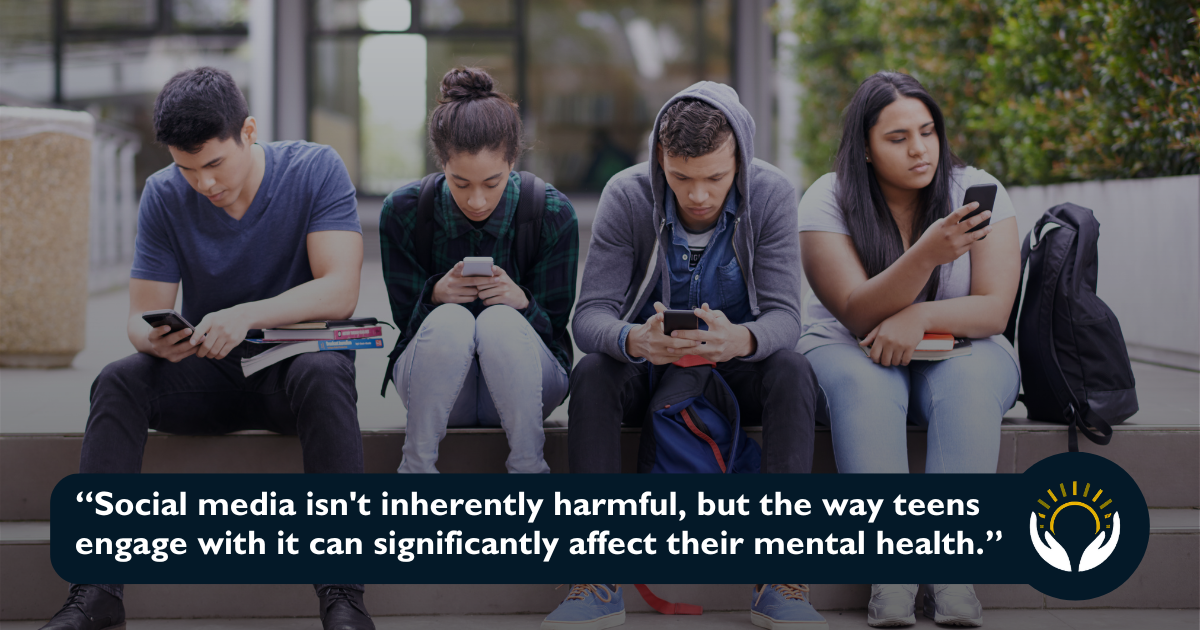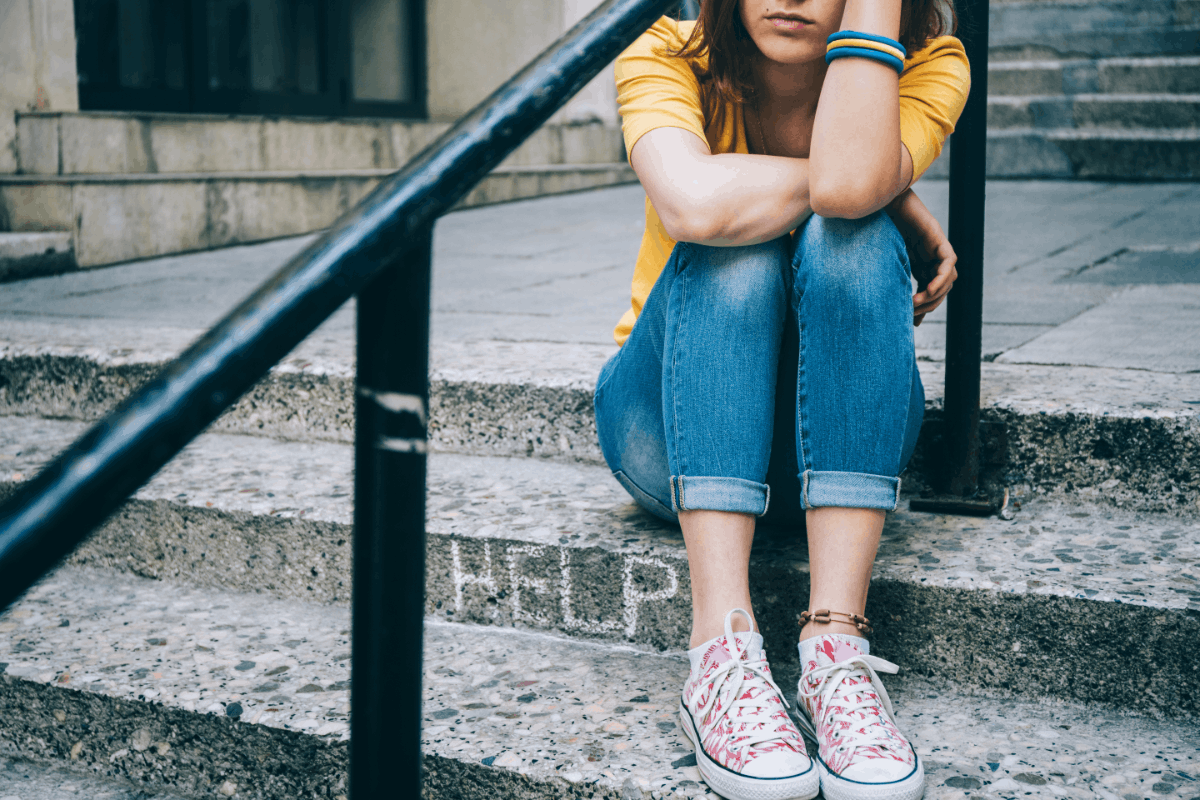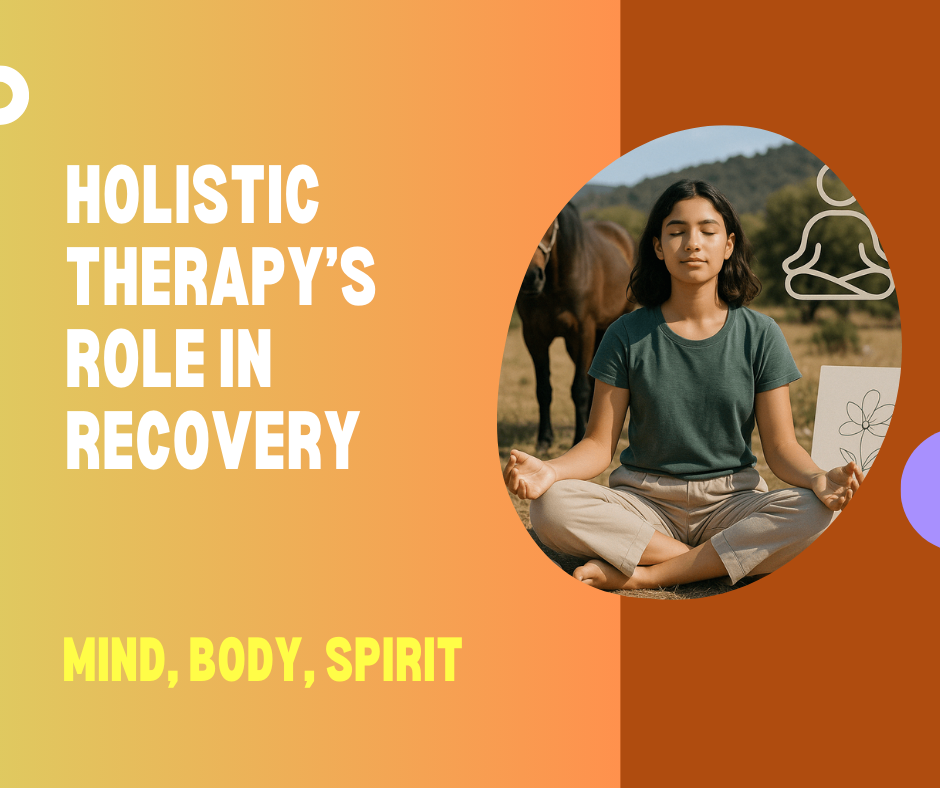
Social Media and Teen Mental Health: 10 Things to Know

Social media has become a significant part of teens’ lives, with nearly all teenagers engaging on platforms like Instagram, TikTok, and Snapchat.
While these platforms offer opportunities for connection and creativity, they can also put your teen’s mental health in jeopardy.
Here’s what parents and educators should know about the impact of social media on teens’ mental well-being.
The Connection Between Social Media and Teen Mental Health
Social media and teen mental health are connected by the platforms’ dual role as a space for community and a source of stress.
While social media helps teens feel more connected to their peers (80%) and offers avenues for creativity (71%), it also amplifies risks like cyberbullying, FOMO, and body image concerns.
About 23% of teens report that social media worsens their self-perception, with teenage girls particularly vulnerable to feelings of exclusion and pressure to portray idealized lives.
Moreover, the algorithm-driven nature of social media fosters addictive behaviors, as frequent dopamine spikes from likes and interactions make stepping away difficult. This cycle increases vulnerability to:
- Teen Anxiety
- Teen Depression
- Disrupted sleep
- Neglect of real-life relationships
Guidance and self-regulation are key for parents and teens who hope social media becomes a positive tool rather than a source of harm.

Here’s what parents and educators should know about the impact of social media on teens’ mental well-being.
1. Most Teens Use Social Media
According to recent research, nearly all teens have at least one social media account. Platforms are integral for staying connected with friends and sharing experiences.
However, 54% of teens agree it would be challenging to give up social media, with older teens and girls finding it more difficult than younger teens and boys.
2. Social Media Has Its Upside
Social media typically has a negative connotation. However, it can foster a sense of belonging, self-expression, and community.
Around 80% of teens feel more connected to their friends, while 71% say it offers a platform for creativity.
Additionally, 67% report that social media provides a support system during tough times.
3. Negative Impacts on Mental Health
Despite the positives, social media can have detrimental effects on a teen’s mental health.
For instance:
- Body Image Issues: Instagram exacerbates body image concerns for one in three teenage girls.
- Mental Health Challenges: 6% of teens experiencing suicidal thoughts link these feelings to social media use.
4. Social Media is the Dopamine Drug
Social media usage triggers dopamine release. This creates a reward loop in the teen’s brain, which can lead to addiction. The cycle makes it hard for teens to step away from their devices, which makes them more vulnerable to stress and anxiety.
5. Cyberbullying and Harassment is Real
Roughly 30% of teens say they’ve been cyberbullied.
Cyberbullying and online harassment can have detrimental effects on teens. It can lead to feelings of isolation and depression and, in severe cases, suicide.
However, most teens feel strongly about the consequences of online bullying. 50% believe users partaking in those activities should be banned permanently or face criminal charges.
6. Pressure to Present a “Perfect” Life
Teens, especially females, often face pressure to curate an idealized online persona. Nearly 29% feel the need to post content that will receive high engagement, and many avoid posting due to fears of embarrassment or social repercussions.
7. Increased Feelings of Loneliness and Exclusion
About 31% of teens feel excluded after seeing posts of friends participating in activities without them.
These feelings of “fear of missing out” (FOMO) can negatively affect self-esteem and increase feelings of isolation.
8. Gender Differences in Experience
Teen girls are more likely than boys to experience negative emotions, such as feeling overwhelmed by online drama (45% vs. 32%) or feeling worse about their lives due to social media (28% vs. 18%).
9. The Algorithms Suck Them In
Social media platforms are designed to keep users engaged for longer periods. A recent study shows that teens spend an average of 4.8 hours per day on social media.
That same study reported that 41% percent of teens who spend the most time on social media rate their mental health as poor or very poor, compared with 23% of those with the lowest use.
This reinforces the idea that teens who spend excessive time scrolling may neglect real-life interactions and activities, having a significant impact on their mental health.
10. Parental Involvement is Crucial
Parents play a key role in mitigating the harmful effects of social media.
To help teens navigate these platforms more responsibly, parents can:
- Engage in open conversations
- Set screen-time limits
- Model healthy online habits can
Tips for Healthy Social Media Use
After reading, it should be clear that when used safely, social media can be a positive tool for teens. However, there are a few steps that need to be taken to avoid the negative impacts of social media:
- Set boundaries by encouraging device-free times, like during meals or before bed.
- Promote balance a healthy balance by suggesting activities that don’t involve screens, such as sports or hobbies.
- Be a role model by displaying mindful social media usage yourself.
- Check-in with your teen regularly to discuss online experiences and emotions.
Remember, social media isn’t inherently harmful, but the way teens engage with it can significantly affect their mental health.
By fostering awareness and setting boundaries, families can ensure that social media becomes a positive tool for connection and growth rather than a source of stress.
For more information about helping your teen navigate mental health challenges, visit Horizon Recovery’s website.
More posts like this
.svg)
Guiding your teen’s path to mental clarity, sobriety, and a hopeful future.
For more information or to schedule a visit, please reach out to us today. Our empathetic and caring team is here to support you every step of the way.
.svg)
.avif)
.svg)
.svg)



